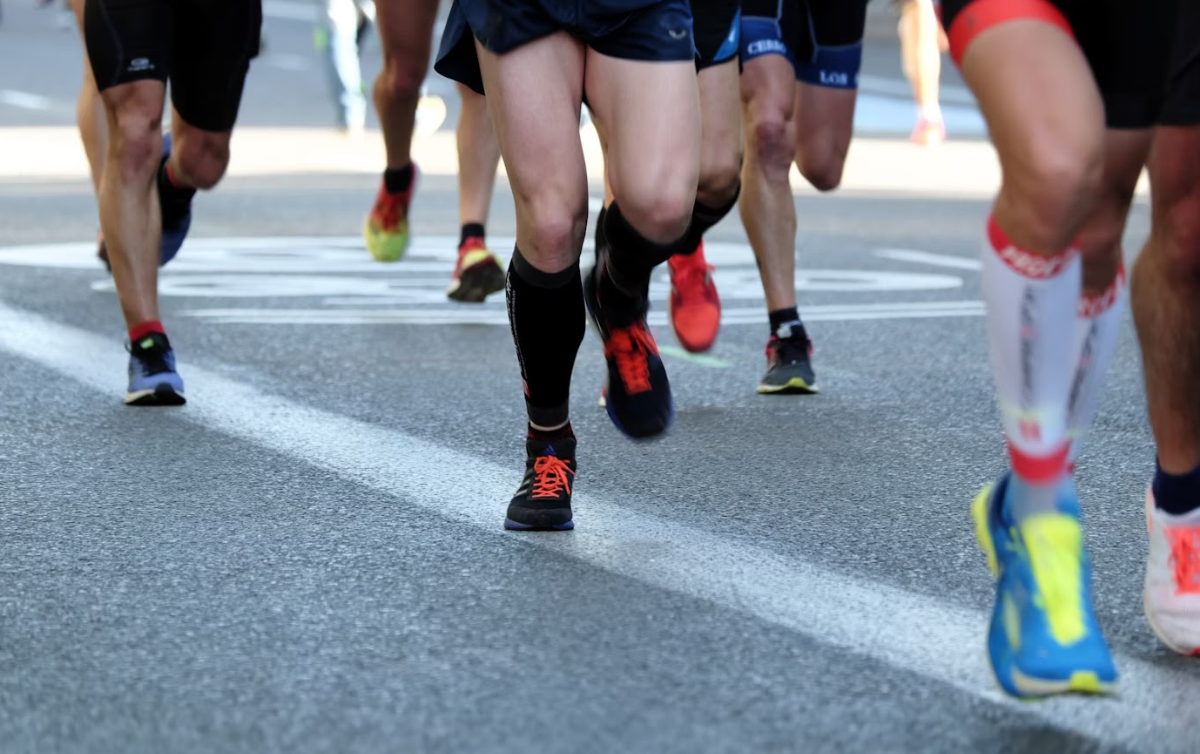
6 minutes, 6 seconds
-3.1K Views 0 Comments 0 Likes

Most hip discomfort from jogging may be addressed at home with the following remedies.
Begin exercise treatment
Therapeutic activities improve strength and flexibility, both of which are required to support the hip joint under the severe load of running. A physical therapist can offer professional advice;
Apply ice
Ice can decrease swelling and temporarily block pain signals from reaching the brain, providing a much-needed physical and emotional reprieve from hip pain after jogging. The American Academy of Orthopaedic Surgeons recommends using ice for 20 minutes at a time multiple times each day;
Scale back for a short time
Although your hips can support a lot of weight and mild movement is an important tool in pain relief, you should avoid overdoing it if your pain flares up. Avoid putting too much strain on a hurting hip for a few days before gradually returning to your regular routine. During that period, walk and do other light exercises, as well as stretching and exercise therapy;
OTC pain medications
Pain medicines such as ibuprofen (Advil, Motrin), naproxen (Aleve), and acetaminophen (Tylenol) can assist with hip discomfort. It is critical to ensure that you can safely take these drugs based on your medical history;
Steroid injections
If over-the-counter medications do not provide adequate pain relief, your doctor may recommend cortisone steroid injections to combat pain and inflammation. These injections include an anti-inflammatory steroid, which helps to reduce inflammation and discomfort temporarily.
Most cases of hip pain, particularly after jogging, may be treated at home. In rare circumstances, it may indicate an underlying medical issue that needs a doctor's intervention. Consult a doctor if you have a history of stress fractures or suffer any of the following:
Pain due to trauma, fall, or sports injury;
Pain that is severe, persistent, or interferes with everyday duties;
You have trouble placing weight on your leg;
Pain that does not improve with the remedies described above, making it difficult to move your hip or leg;
Pain spreads from the hip to other regions;
A clicking, cracking, or catching feeling in your hip.
Many apparently insignificant elements regarding your training might make your hip muscles more susceptible to tension. Muscles that are tight or weary are more likely to be injured, for example. Anything that causes stress on your joints, such as inadequate footwear, jogging on hard terrain, or raising your distance too quickly, increases your risk of injury. Remember that hip discomfort is frequently the result of a mix of circumstances. While you may not have control over all of them, following easy techniques help lessen daily stress on your hips and prevent injuries from happening (or recurring):
Proceed gently
Overuse, like rapidly increasing your mileage, can contribute to hip muscle soreness. A decent rule of thumb is to increase your running time by 10% per week. So, if you run 120 minutes this week, you may confidently go to 132 minutes the next week;
Embrace a flexible mentality
If you need to quickly increase your training for an event or race, be prepared to change your training program to avoid injury. Runners excel at developing these highly tight, planned training schedules. Allow yourself the grace to listen to your body and be really flexible. It's fine to step back and adjust a couple of your training sessions. You'll still make it until race day;
Warm-up
One advantage of running is that you can just slip on your sneakers, go out the door, and go. However, if you do not warm up, you lose the opportunity to prepare your muscles for more strenuous activities. Do dynamic stretches like high knees and butt kicks to prepare your hips. Even a five-minute stroll will help you warm up and prepare your body for running;
Calm down
Taking the time to hold some slow, static stretches (such as the ones below) keeps your muscles stretched and flexible, which makes them more resistant to injury. Just as you need to prepare your body to sprint, you must calm down before abruptly ceasing action. Otherwise, it's similar to striking a wall;
Work on your strength
Many runners avoid strength training. We run because we appreciate endurance workout. However, research suggests that strength training two to three times per week helps avoid injury and increases running economy, which is the efficiency with which you gain speed while using energy;
Soften your steps
Wear well-cushioned shoes and, where feasible, pick more forgiving running surfaces such as jogging tracks, grass, or dirt trails.


